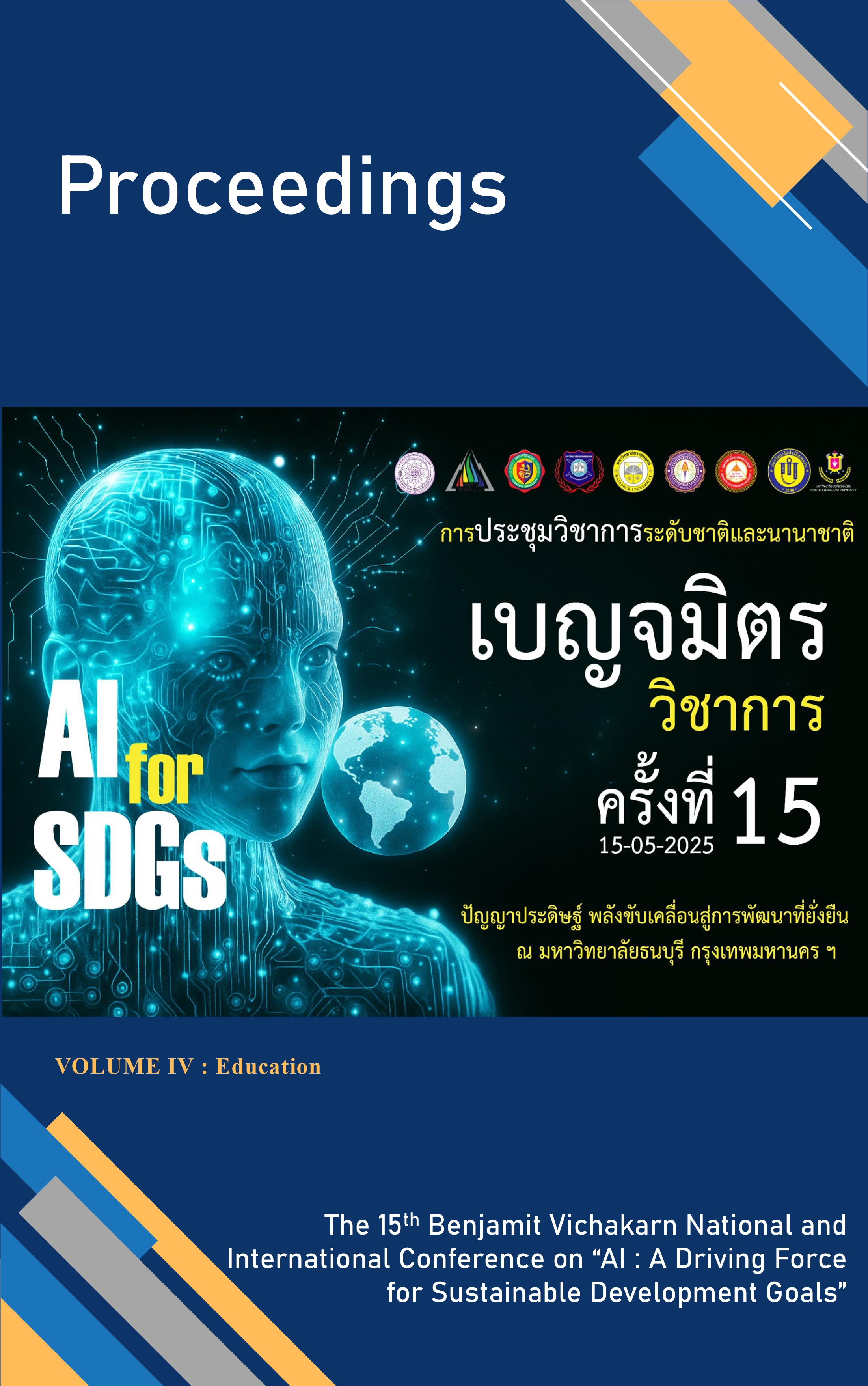Developing English Vocabulary Memory on Food and Drinks by Using Game-Based Learning for Grade 3 Students
Main Article Content
Abstract
This research aimed to: 1) develop third-grade elementary students in memorizing English vocabulary related to food and drinks, achieving a test score of at least 60% using Game-based Learning; 2) Examine student satisfaction with the Game-based Learning method. The sample group consisted of 39 third-grade students from Wat Thong Sutthararam School. The research employed a One Group Pretest-Posttest Design. The research instruments included: a lesson plan; educational games on food and drinks; a 10-item spelling test with a content validity index (IOC) of 0.67-1.0; and a 5-level satisfaction questionnaire with a content validity index (IOC) of 0.67-1.0. Statistical analysis involved percentages, means, and standard deviations.
The results revealed that the 39 third-grade students from Wat Thong Suttharam School showed a mean pretest score of 3.69 (SD 1.85) and a mean posttest score of 8.03 (SD 1.35) after using the Game-based Learning method. All students demonstrated higher scores after the intervention. Overall student satisfaction with the Game-based Learning method was rated as "very high," with individual item ratings also predominantly "very high" and "high."

